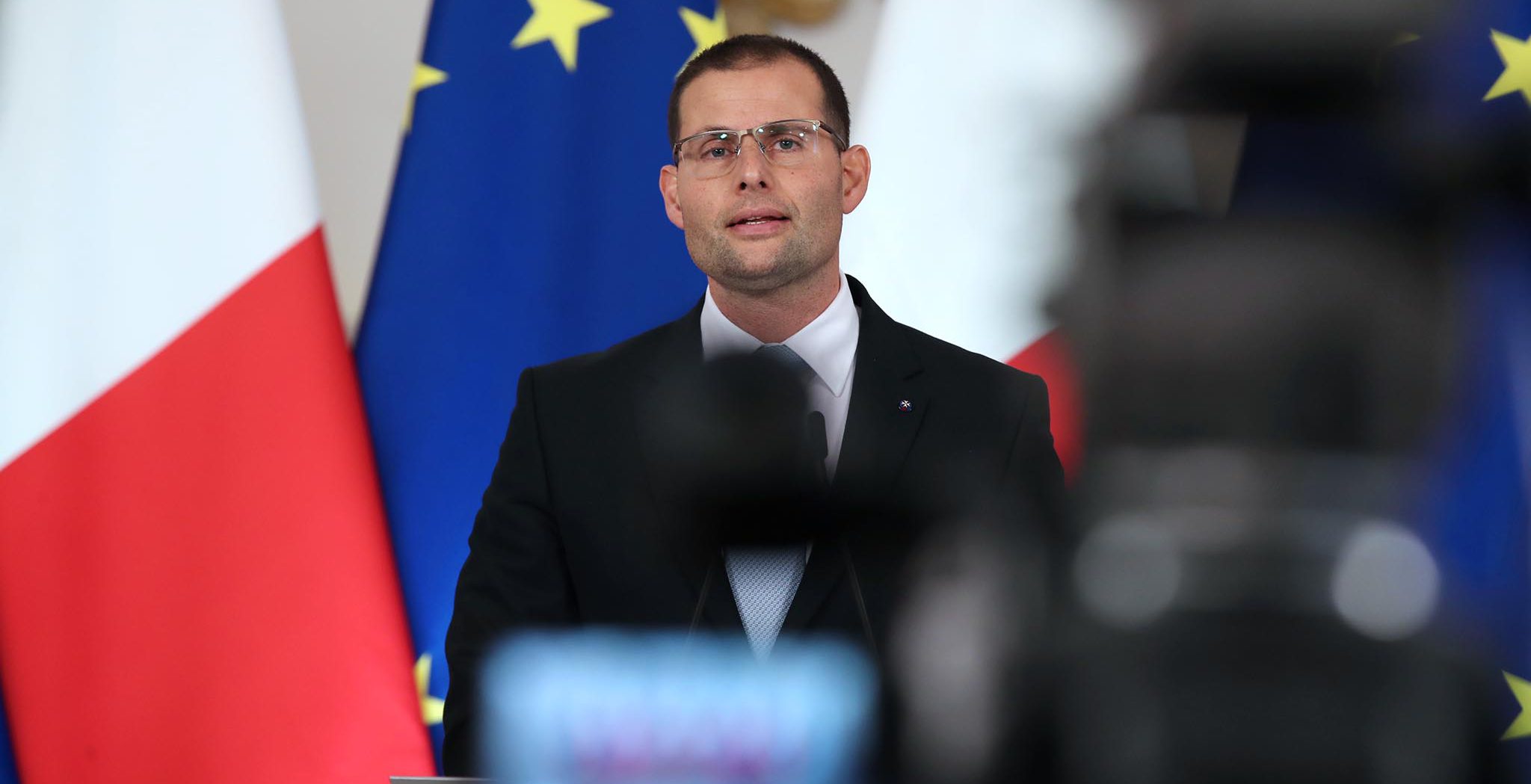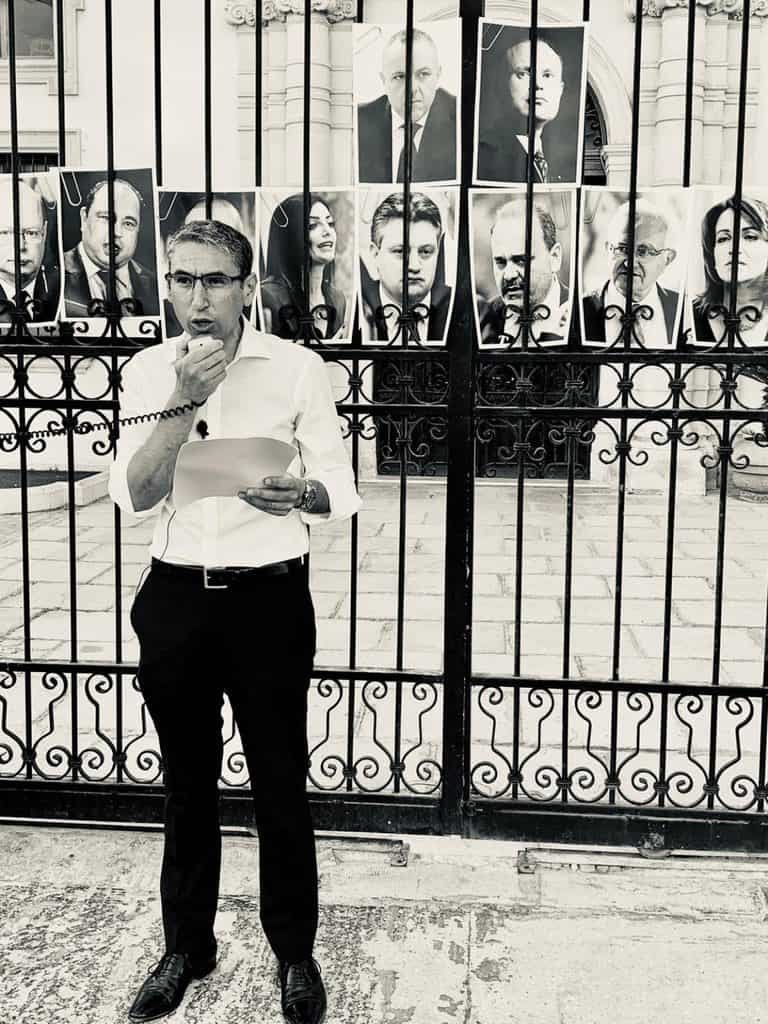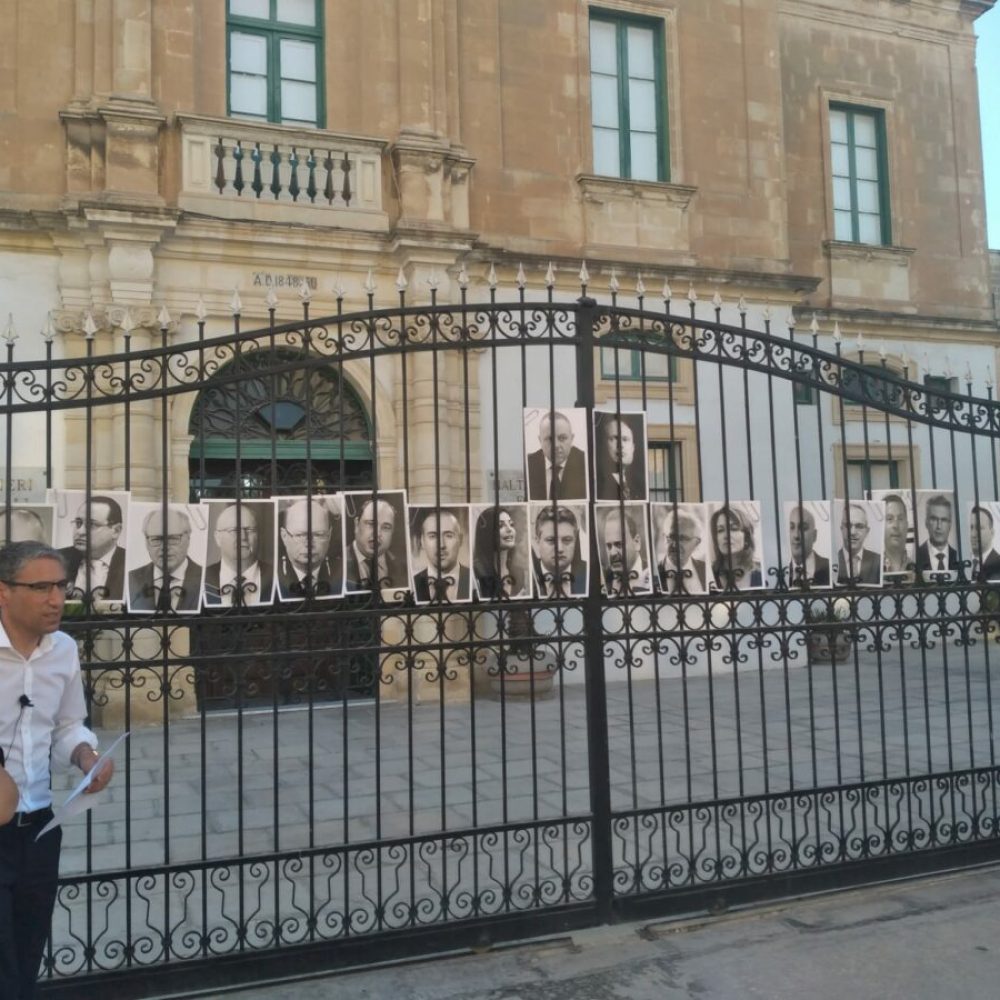Investigative and prosecution bodies have improved their capacity to deal with corruption, at least on paper, but investigations take far too long, and no one is being convicted. This includes the perpetrators of the assassination of journalist Daphne Caruana Galizia in October 2017.
That’s the verdict of the European Commission’s 2021 rule of law report on Malta, where corruption cases involving politicians and high-level officials remain trapped in a legal limbo that drags on for years without a conclusion.
Despite claims by Prime Minister Robert Abela that this year’s report confirmed recent reforms had strengthened Malta’s institutions, it was far from a glowing pat on the back for the troubled country.
The EC found “serious challenges” remain in terms of the efficiency of the Maltese justice system, in particular the length of proceedings, the low number of judges, and the lack of an established track record in high-level corruption convictions.
Reforms related to the Police Commissioner haven’t produced any observable results, despite the replacement of the inept Lawrence Cutajar, who is currently being investigated for “possible collusion” related to leaks in the Daphne Caruana Galizia murder investigation.
The Permanent Commission against Corruption underwent ‘structural reforms’ in 2020 that strengthened its independence, changed the procedure for appointing its three commissioners, and extended the scope of its investigative powers. But its resources remain limited, it doesn’t have any in-house investigators or data analysts, and it hasn’t produced any results in its entire existence.
The EC’s report notes that over the last two years only two cases have been forwarded to the Attorney General for possible action.
The independence of the Attorney General also came under fire. Despite changes, touted by Malta as the solution that the Venice Commission was demanding, the report notes “the appointment of the Attorney General remains predominantly under the power of the Prime Minister which has been raised as an issue”.
The average length of money laundering cases was 1,350 days, and “serious concerns about the efficiency of the Maltese justice system were raised by stakeholders”. Delays were further exacerbated by a “relatively low number of judges and magistrates” — the lowest per capita in the EU.
The government’s ‘solution’ to these legal logjams is to empower administrative authorities to deal with minor offences which would normally be handled by the court, and to increase the number of Justice Commissioners empowered to rule on them.
It sounds like a reasonable plan on paper, but as always in Malta, alarm bells ring when it comes to implementation. Commissioners are appointed by the Justice Minister, a close personal friend and travel partner of disgraced former prime minister Joseph Muscat. Appointments are valid for two years and can be renewed or cancelled at the discretion of the Minister to whom they owe their job.
The Minister’s recent appointees include former ‘journalists’ from the Labour Party’s TV station (in Malta, the political parties dominate ownership of the media landscape); the daughter of another Minister, a recent law school graduate whose only work experience is two years at her father’s law firm; former Labour MPs who failed to get reelected; the son of Pawlu Lia, Joseph Muscat’s personal lawyer, and the Labour Party’s favourite legal counsel; and the son of a disgraced former judge who retired before he could be impeached by parliament.
It’s a continuation of Muscat’s strategy of controlling ‘independent’ institutions by choosing Party insiders to run them.
Prime Minister Robert Abela claimed Malta is ‘redoubling’ its efforts to get off the Financial Action Task Force (FATF) greylist, but the international community hasn’t been fooled by paper reforms or ‘independent’ institutions run by individuals beholden to the people they’re meant to investigate.

The UK responded by placing Malta on its list of high-risk countries for money laundering and terrorist financing, which increases both the risk and administrative burden of dealing with companies and individuals in Malta. Local financial industry practitioners are bracing themselves for the fallout they know is coming. It’s likely to be a long, hard struggle.
Secretary General of the EPP Group in the European Parliament and former opposition leader Simon Busuttil said in a tweet that the Prime Minister “knows that to get Malta off these lists, they must stop blocking the prosecution of Joseph Muscat and Konrad Mizzi for corruption and money laundering. They know this very well. But they are too weak to do it.”
The EC’s 2020 Rule of Law Report said, “the ongoing investigation and separate public inquiry into the assassination of investigative journalist Daphne Caruana Galizia have unveiled deep corruption patterns and raised a strong societal demand for significantly strengthening the capacity to tackle corruption and carrying out wider rule of law reform.”
The common theme throughout this new 2021 assessment is that, while reforms have been introduced on paper, actual results remain to be seen — especially when it comes to prosecuting corruption.
John Dalli is a prime example of the sort of high profile politician who remains untouchable despite ample evidence. The disgraced former EU Commissioner and personal advisor to Joseph Muscat issued a furious statement last week demanding an apology from civil society activist group Repubblika after they included his image at a protest outside police headquarters in which they profiled various government ministers and officials, enablers and beneficiaries, demanding their prosecution.

Dalli described the activists as “a small group of exalted puppets who do not represent anyone” but are boosted by the “corrupt” media, insisting he was himself the victim of lies by murdered journalist Daphne Caruana Galizia, whom he described as a “perverse criminal”.
“It’s a surreal situation,” NGO Repubblika president Robert Aquilina said, considering Police Commissioner Angelo Gafa had told a parliamentary committee that police received a recommendation from the Attorney General to proceed against Dalli as far back as 2013. Instead, he is free to issue statements and propagate the narrative that the international award-winning journalist somehow got what she deserved.
As the country awaits the imminent release of the public inquiry’s findings, the fact that John Dalli only felt safe to return to Malta after Joseph Muscat was elected — and that he remains at large — is testament to the impunity that has been the norm in Malta since 2013.
The following project is weekly Maltese Roundups prepared by The Shift News (Malta) offering the latest news in Daphne Caruana Galizia case.

